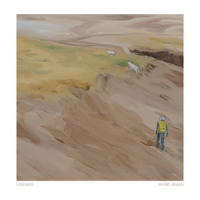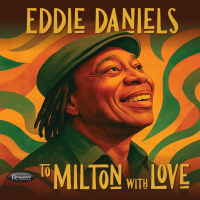Home » Jazz Articles » Album Review » Nina Simone: You've Got To Learn
Nina Simone: You've Got To Learn
There was another vocal roar during those turbulent times—the increasingly outspoken and impactful Nina Simone. She captivated listeners early in her career with a definitive version of "I Loves You Porgy" at the tail end of the '50s but was soon transitioning her music by challenging indifferent politicians, dealing with civil rights issues and expressing anger and outrage via her more aggressive songs. The good news about this civil rights activist, singer and classically trained pianist was that she had 'attitude.' The bad news was that she had attitude and it eventually alienated the public. But, if you are called, you answer and you persist. You've Got to Learn, a stunning six-song live set from the 1966 Newport Festival, has recently been unearthed. Clocking in at just over a half hour, it is a compact album and, while only a few songs performed that day challenged the listener to stand up, scream and to let their voice be heard, it is a stunning presentation from start to finish.
Simone let her exquisite piano work open the set with pure, piercing and potent tones. Vocally, she was a master of combining the essence of jazz, blues, gospel and so much more. Her articulate, exalted hymn-like vocals on "You've Got to Learn" snare the listener and, within a few minutes, she can not help but talk about 'misery,' 'sadness,' 'sympathy,' 'humiliation' and more. That day's version of "Porgy..." was a whispered, at times timid, plea for help as well as a deep, intimate proclamation of love. As with her original version, the song is nakedly intimate and personal. "Blues For Mama," with its gritty guitar and her wailing vocals, reminds listeners that Ma Rainey and Bessie Smith might have been there first when it came to recognizing abuse but Simone carries the flag of female pride and raises it even higher. "Be My Husband" is a near acapella chant-like selection. The winds coming off the Rhode Island shoreline that Simone briefly acknowledged proves that the gods were present and willing to add their own thunder to her lightning. Then Simone takes things even higher. Her determination to confront, challenge and condemn rises up like a vicious tide on "Mississippi Goddam." Who would have the courage to write and record this song in the '60s? One answer—a black woman named Nina Simone. The song grew out of the smouldering ashes of the church bombing in Alabama and other southern rooted violations. The picture she paints with blood and tears will forever hang next to an equally bitter civil rights anthem, Billie Holiday's "Strange Fruit." But then there's a hint of optimism at the very end of the set—or maybe just a wish—as Simone gently bids everyone goodbye on "Music for Lovers."
Simone's talent was evident early on and she methodically claimed both fame and fortune. But as the wounds of a racially conflicted country continued to fester, where were we when Nina Simone needed us the most? Her protests sparked an exodos of fans, the record companies isolated her, J. Edgar Hoover probably had her phone number marked with a 'star' in his Rolodex and her convoluted battle with her own inner demons heated to a boiling point. She was difficult to deal with and self-isolation, both personal and physical, was on the bleak horizon. But reverential recognition and respect for her have risen again. It may seem late but it looks like it will be consistent and everlasting this time around.
Track Listing
You’ve Got To Learn; I Loves You Porgy; Introduction To Blues For Mama; Blues For Mama; Be My Husband; Mississippi Goddam; Music For Lovers.
Personnel
Nina Simone
piano and vocalsRudy Stevenson
guitar, electricLisle Atkinson
bassBobby Hamilton
drumsAdditional Instrumentation
Nina Simone: vocals, piano, spoken word; Rudy Stevenson: guitar (1, 2, 4, 6); Lisle Atkinson: bass (1, 2, 4, 6); Bobby Hamilton: drums(1, 2, 4-6).
Album information
Title: You've Got To Learn | Year Released: 2023 | Record Label: Verve Records
Tags
PREVIOUS / NEXT
Support All About Jazz
 All About Jazz has been a pillar of jazz since 1995, championing it as an art form and, more importantly, supporting the musicians who make it. Our enduring commitment has made "AAJ" one of the most culturally important websites of its kind, read by hundreds of thousands of fans, musicians and industry figures every month.
All About Jazz has been a pillar of jazz since 1995, championing it as an art form and, more importantly, supporting the musicians who make it. Our enduring commitment has made "AAJ" one of the most culturally important websites of its kind, read by hundreds of thousands of fans, musicians and industry figures every month.





















